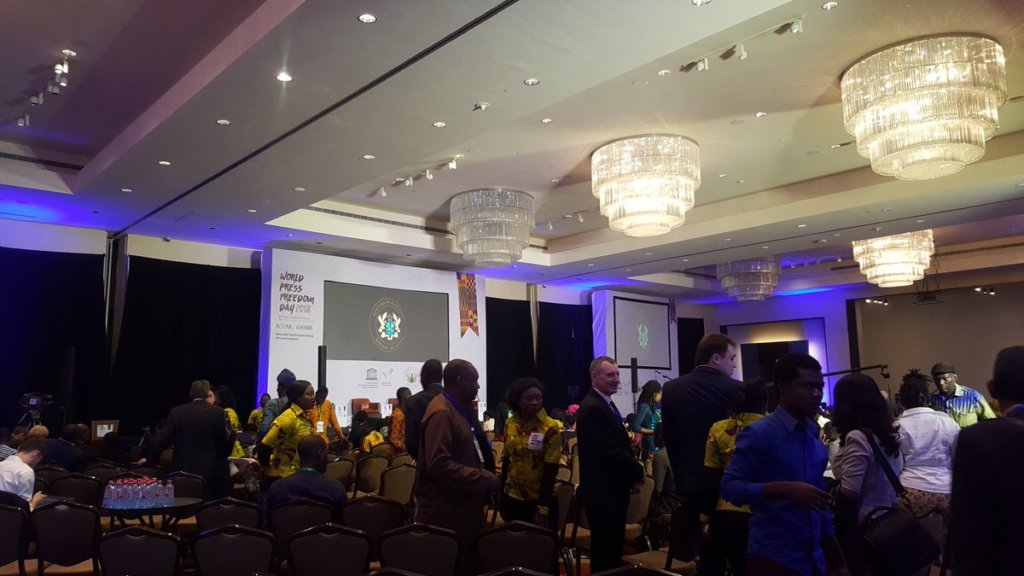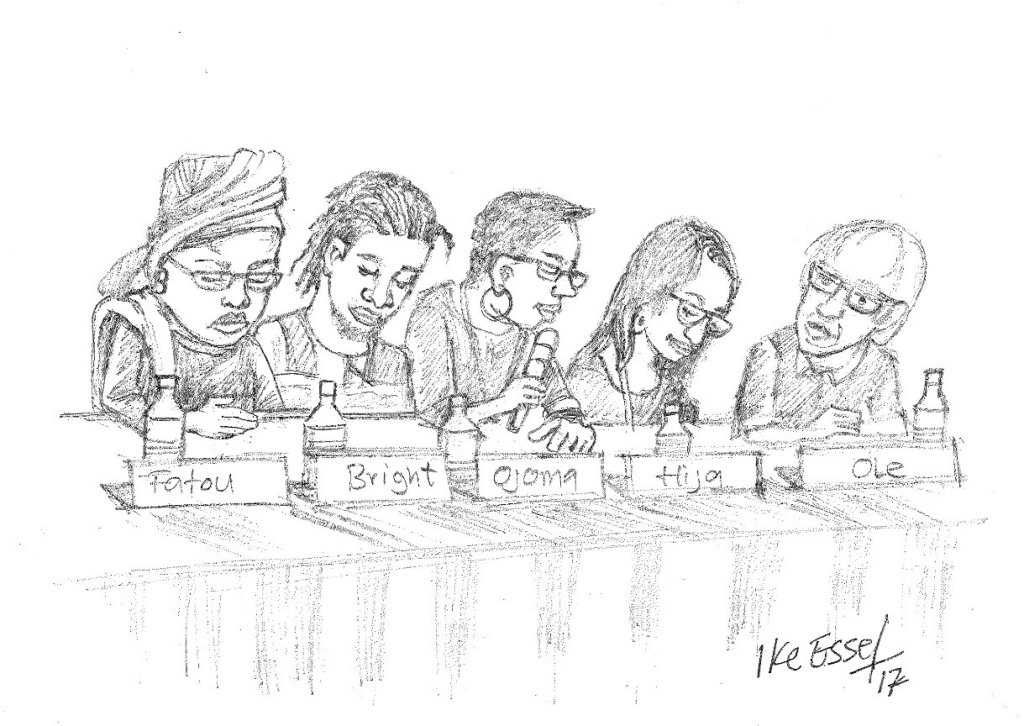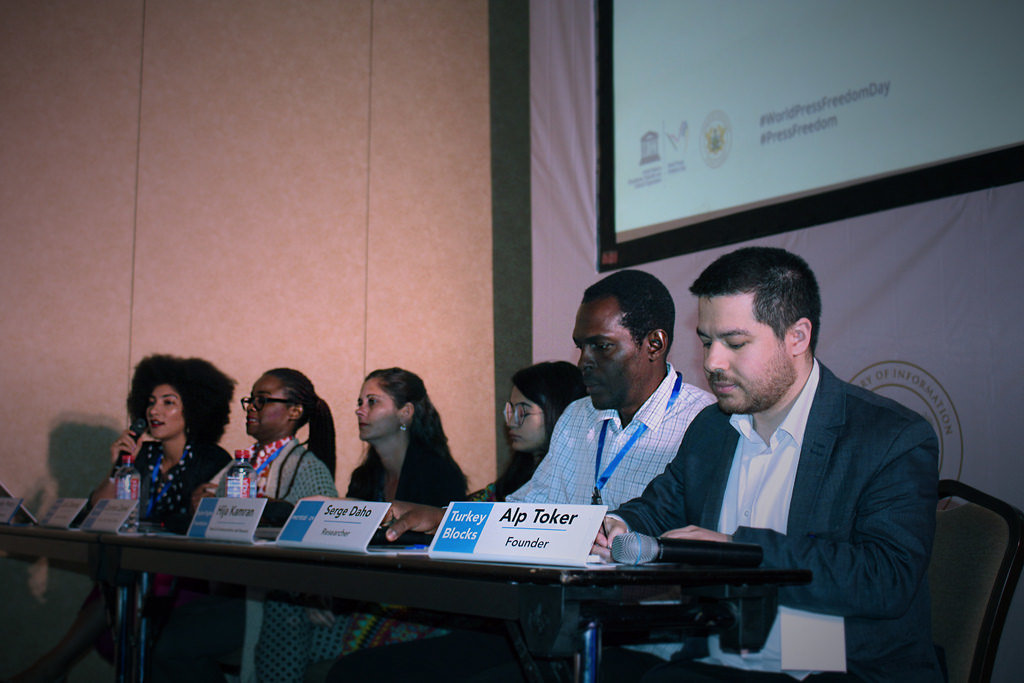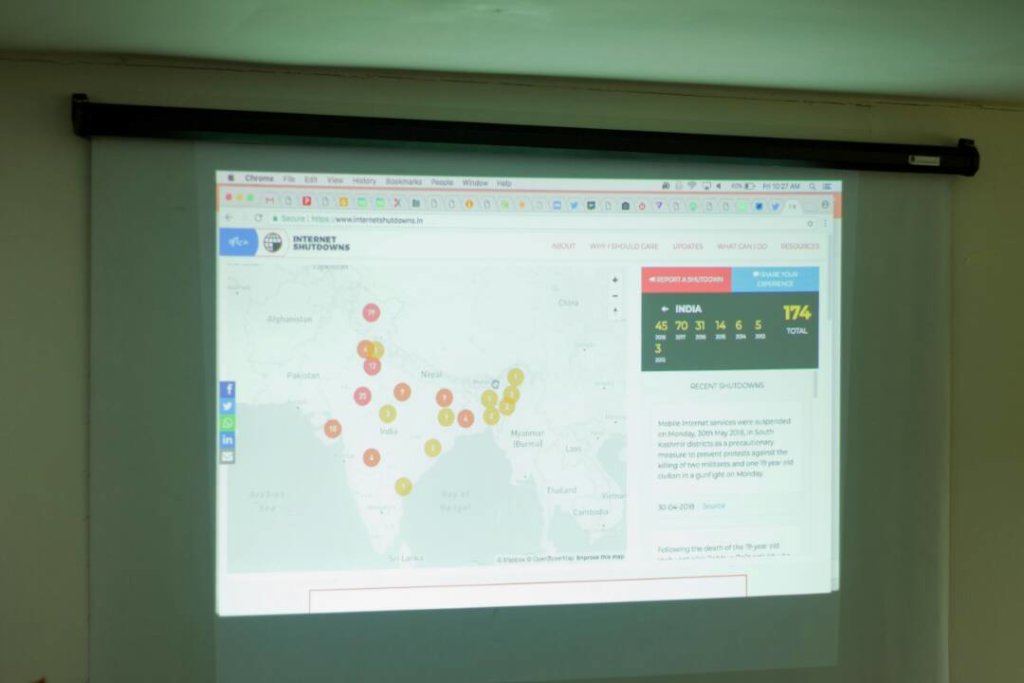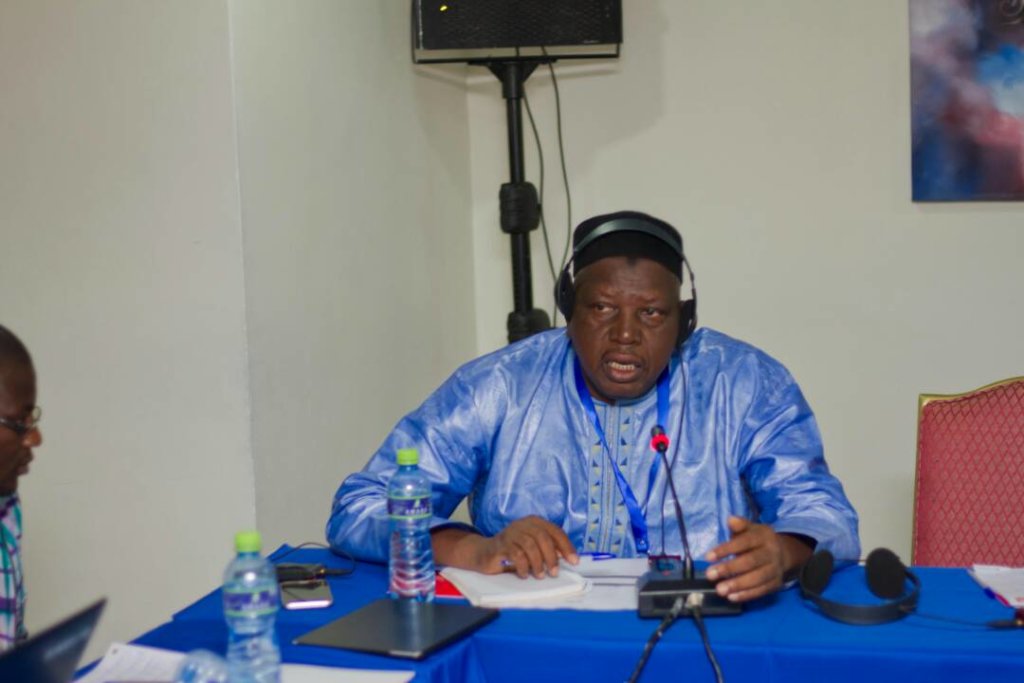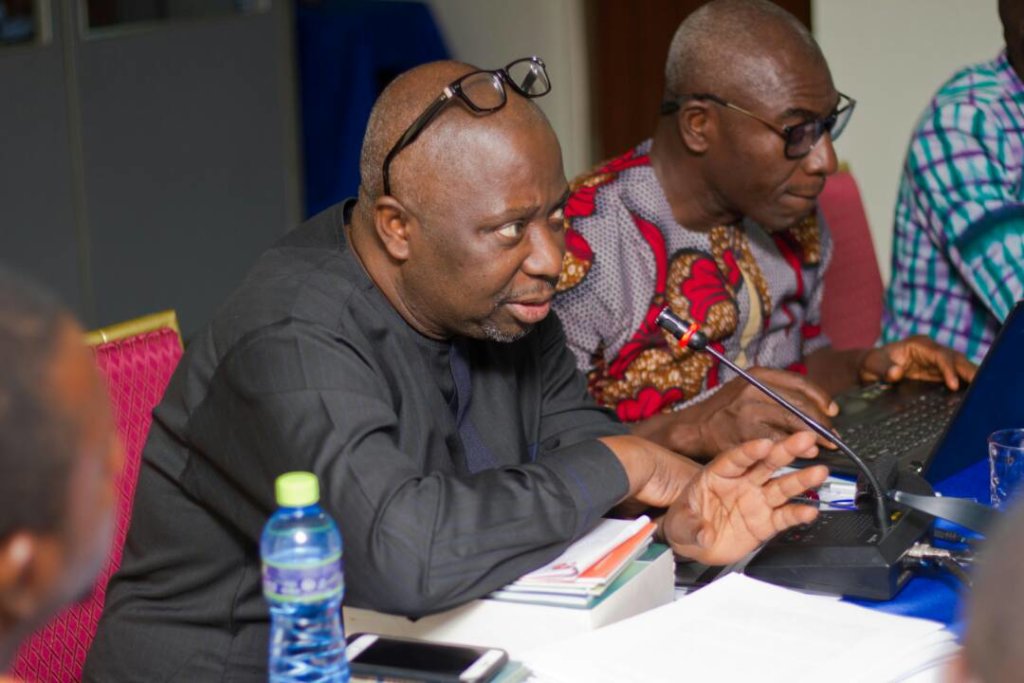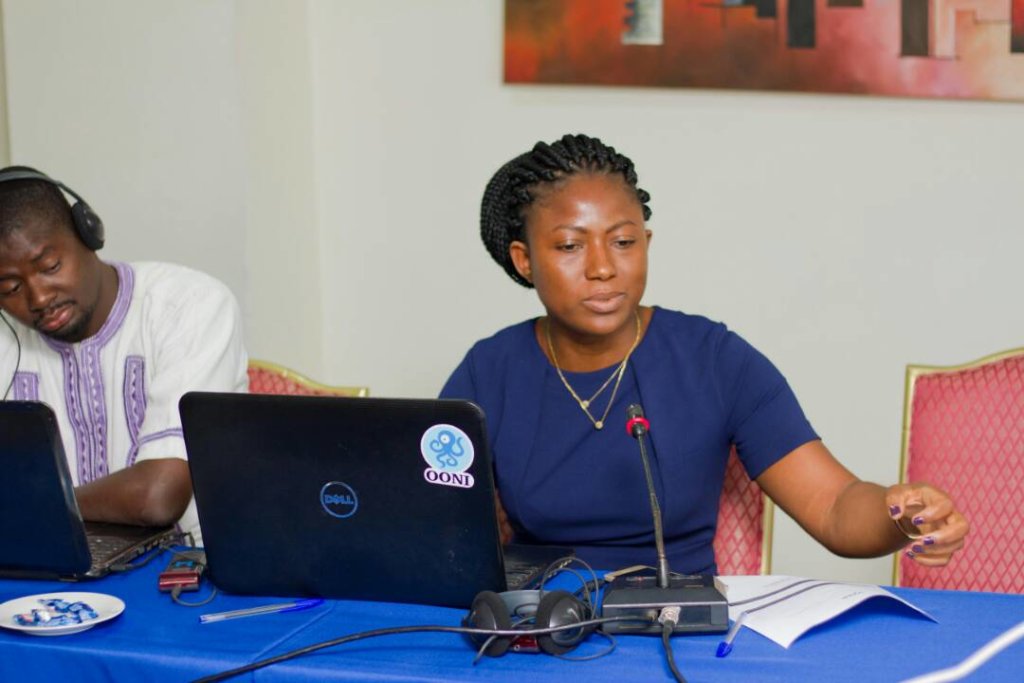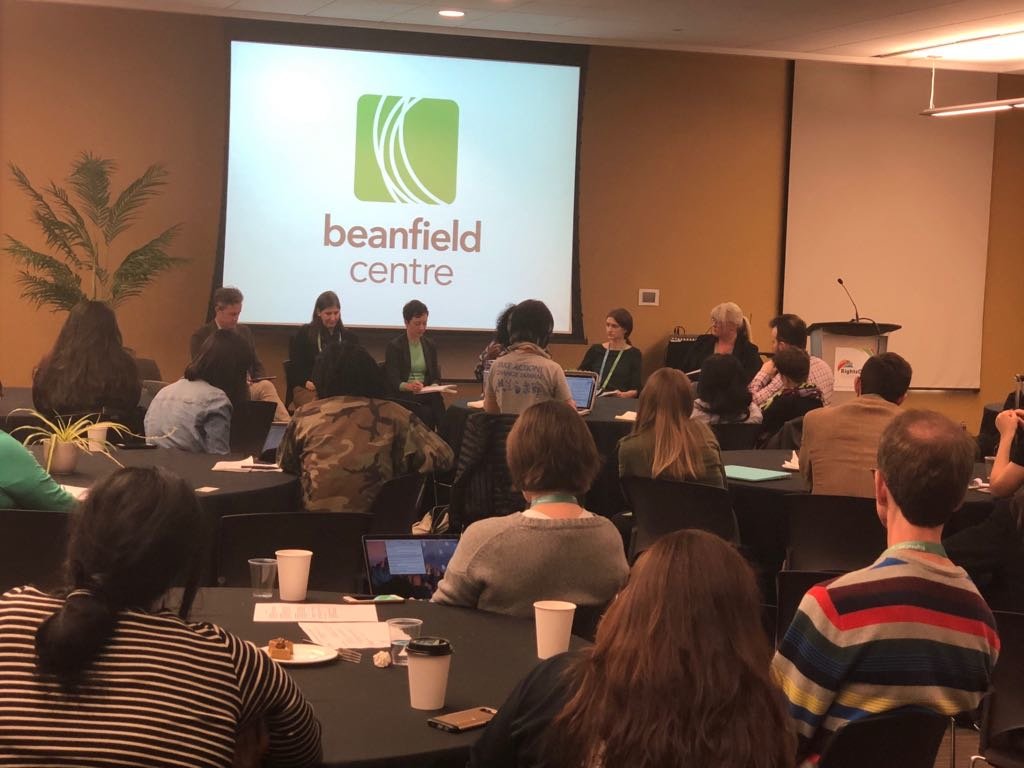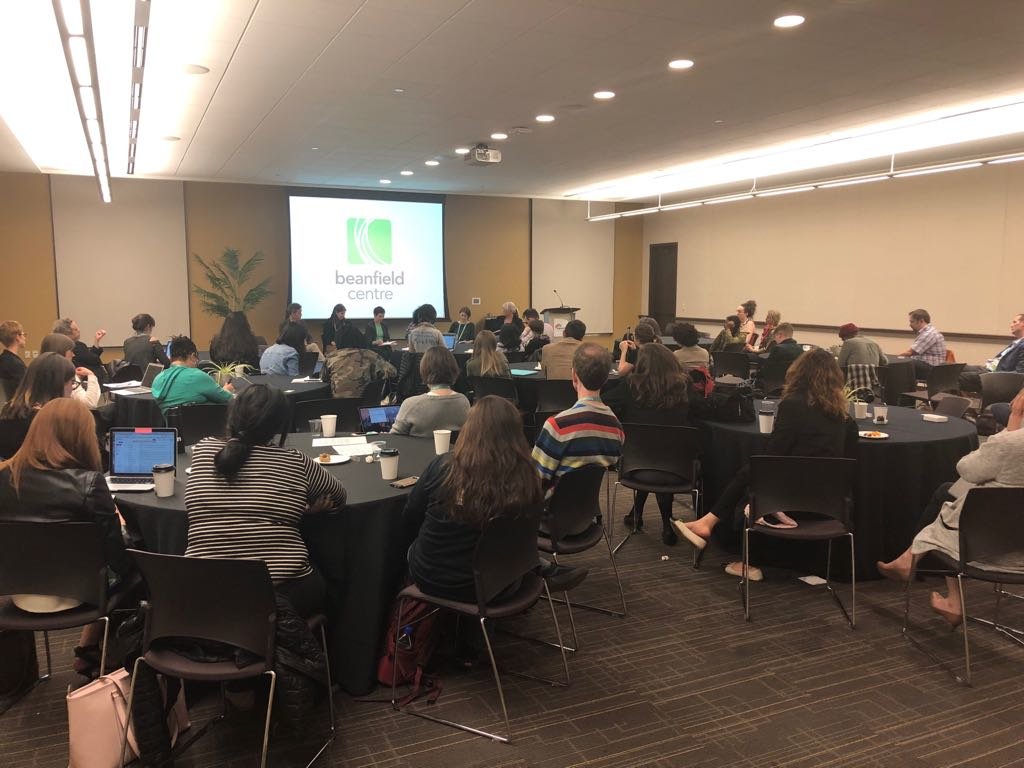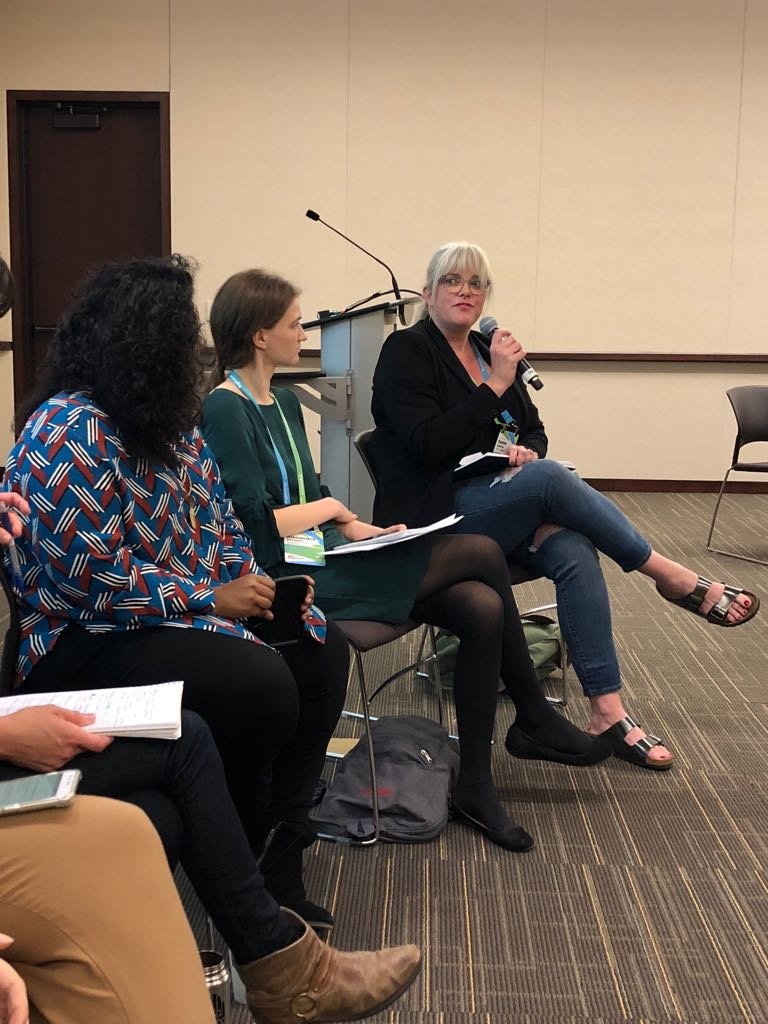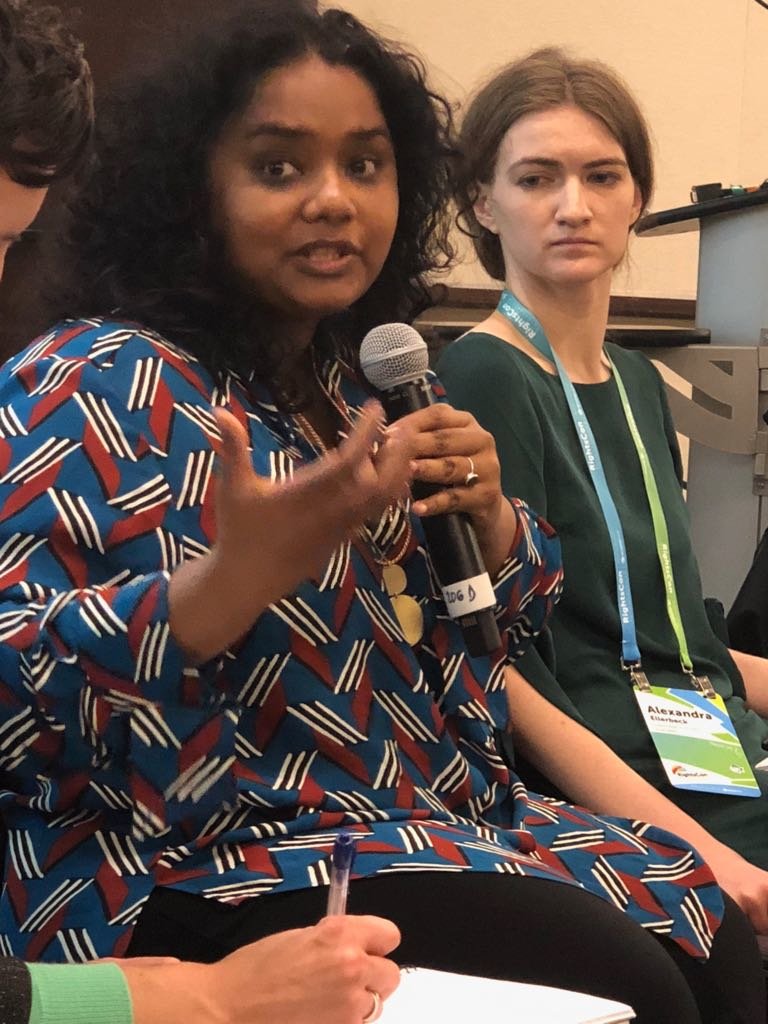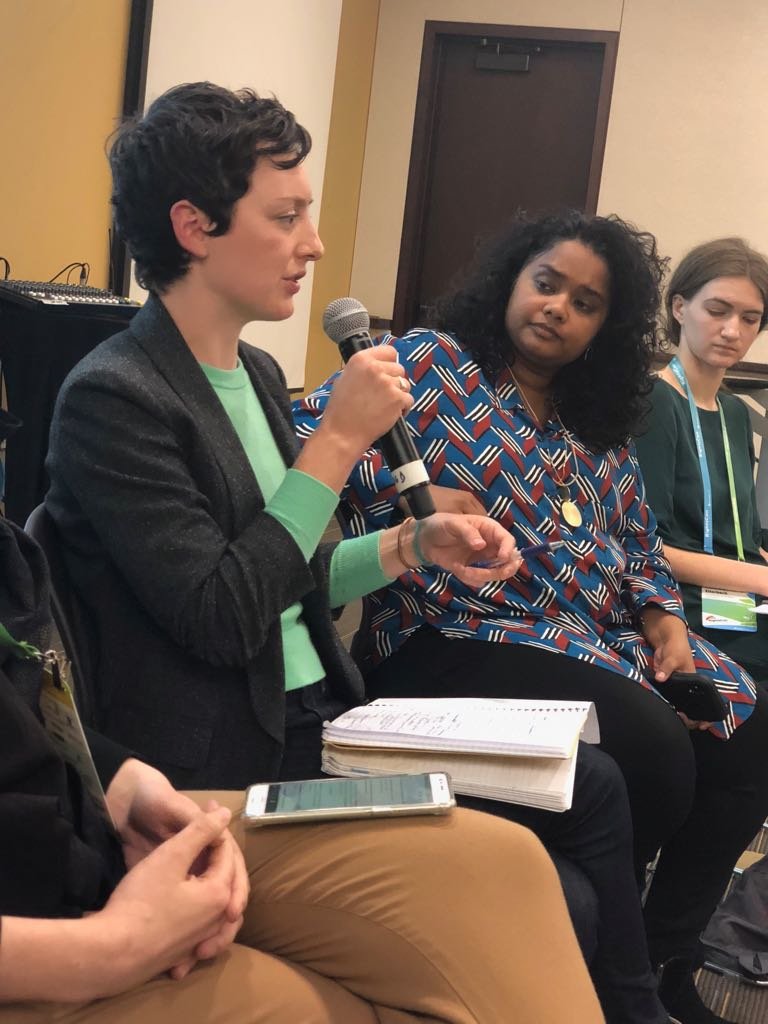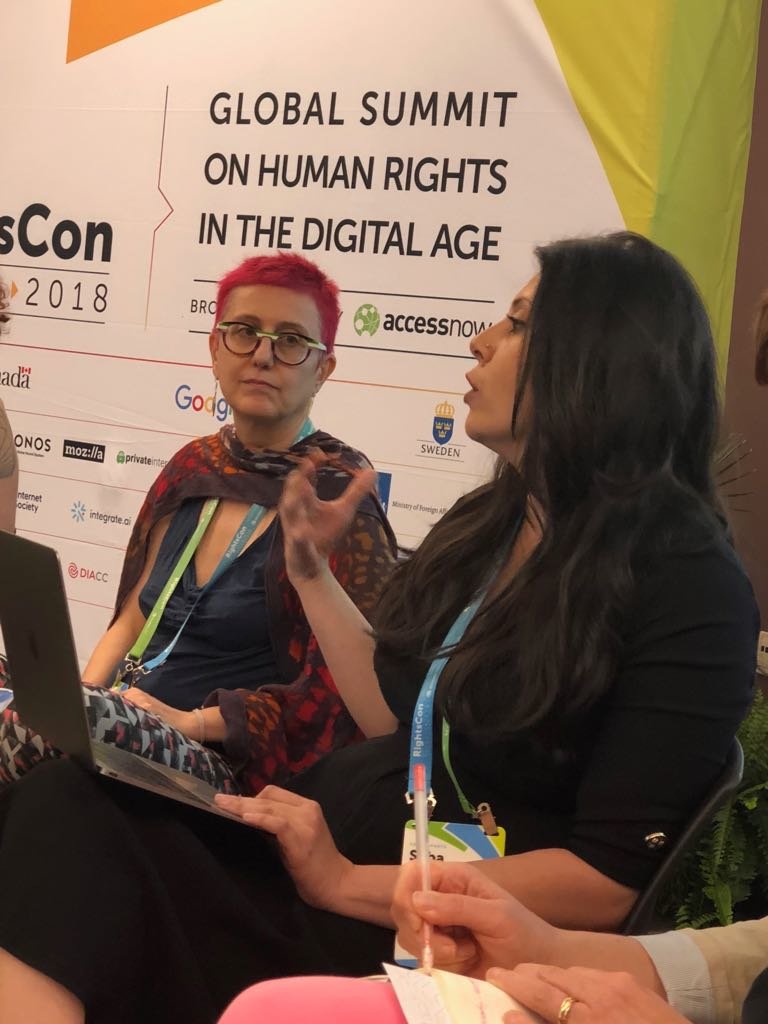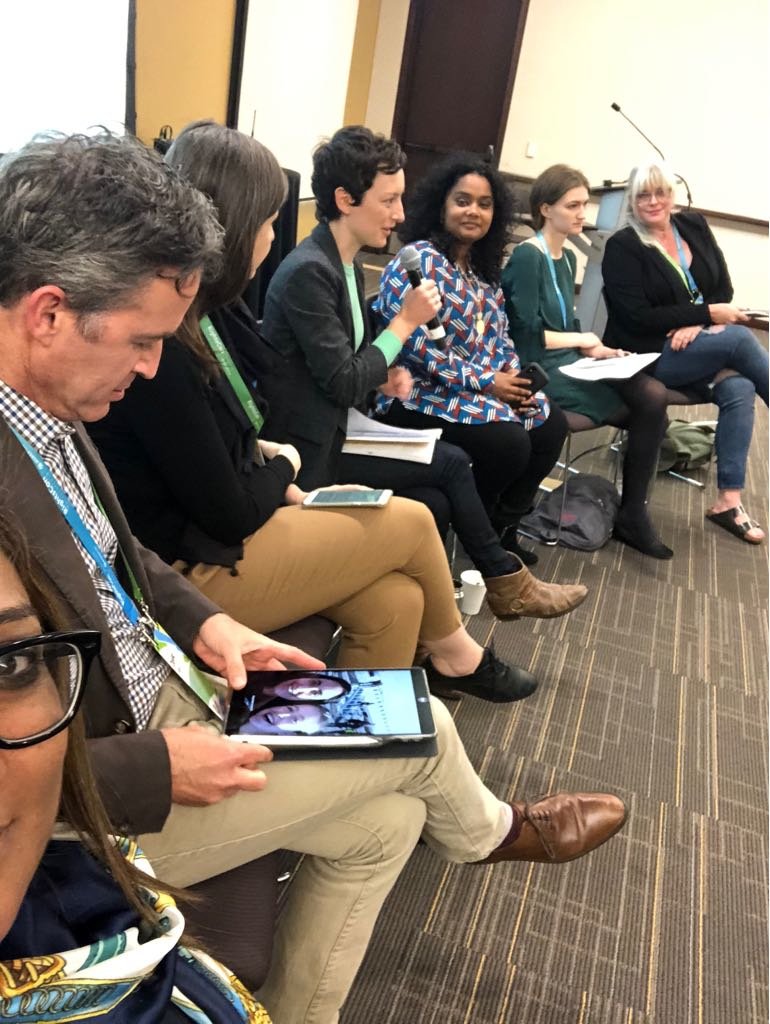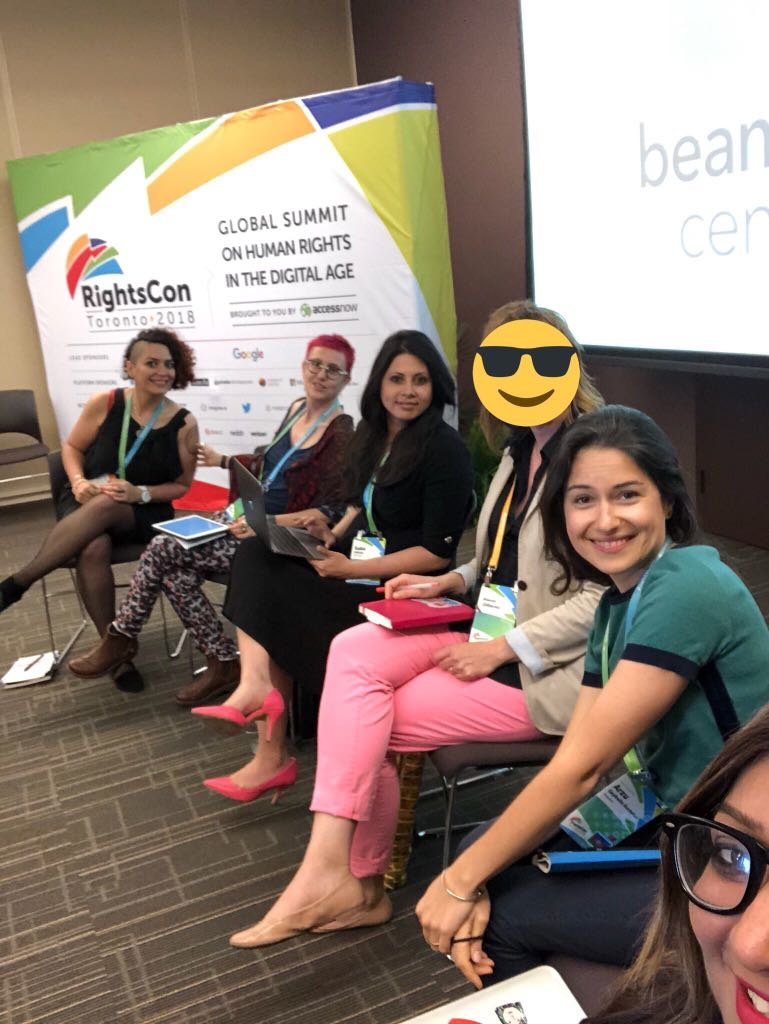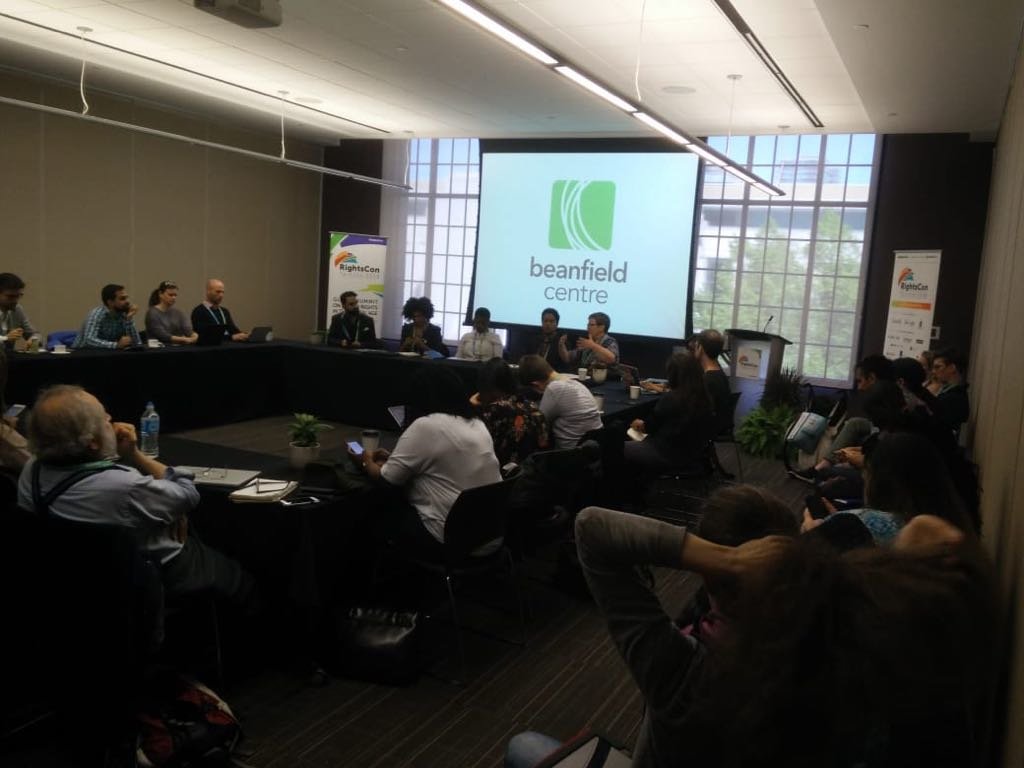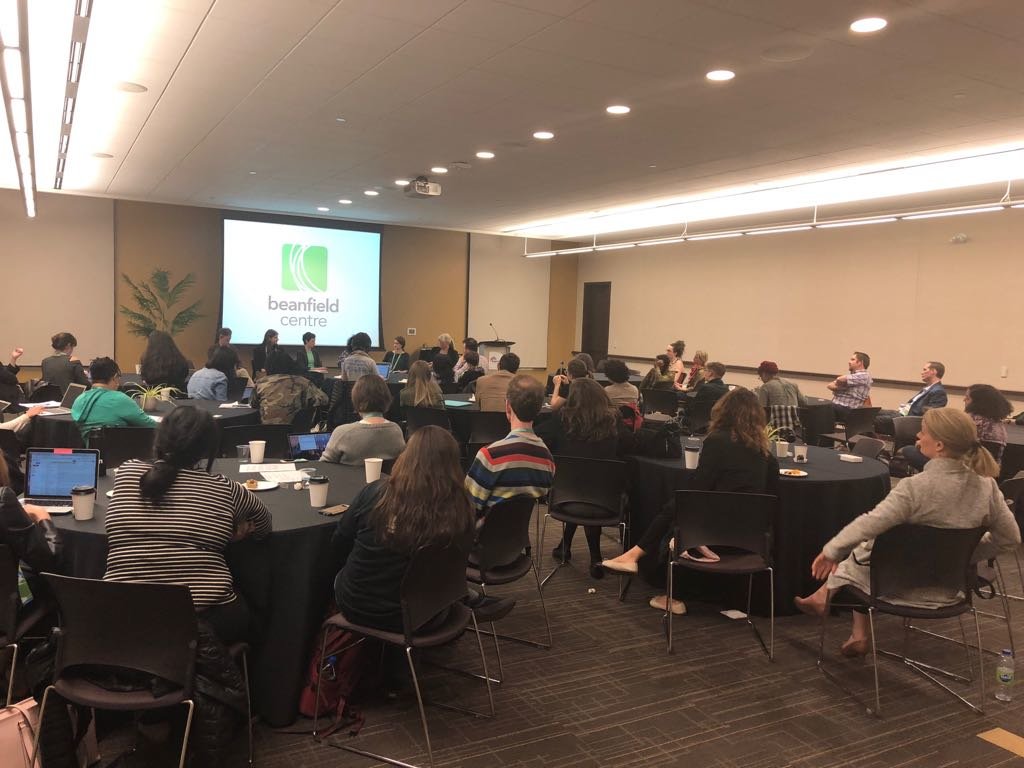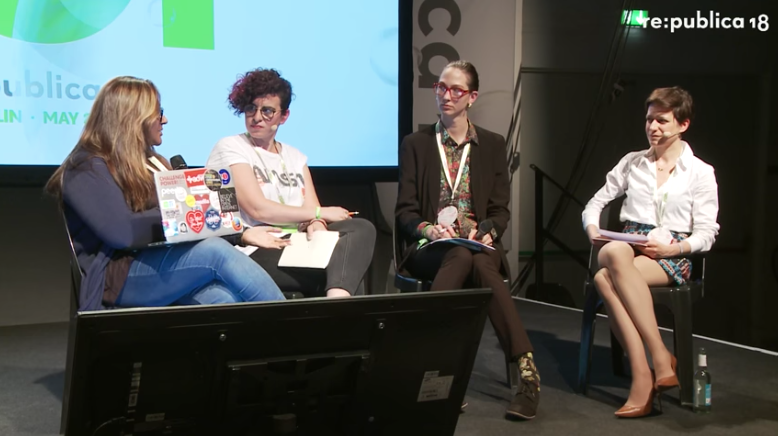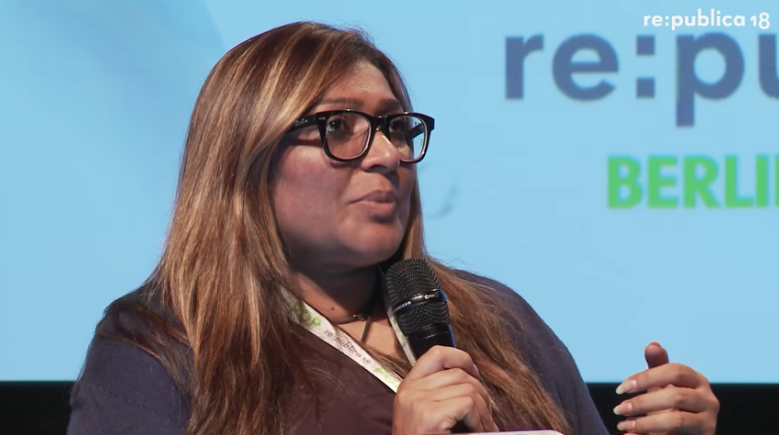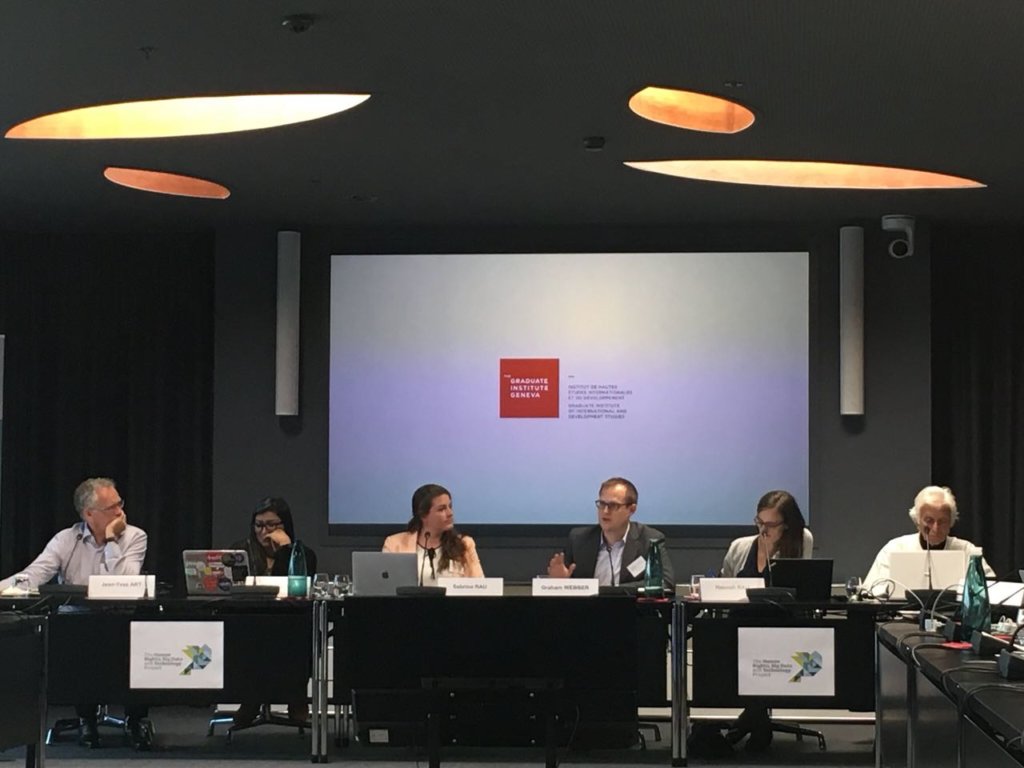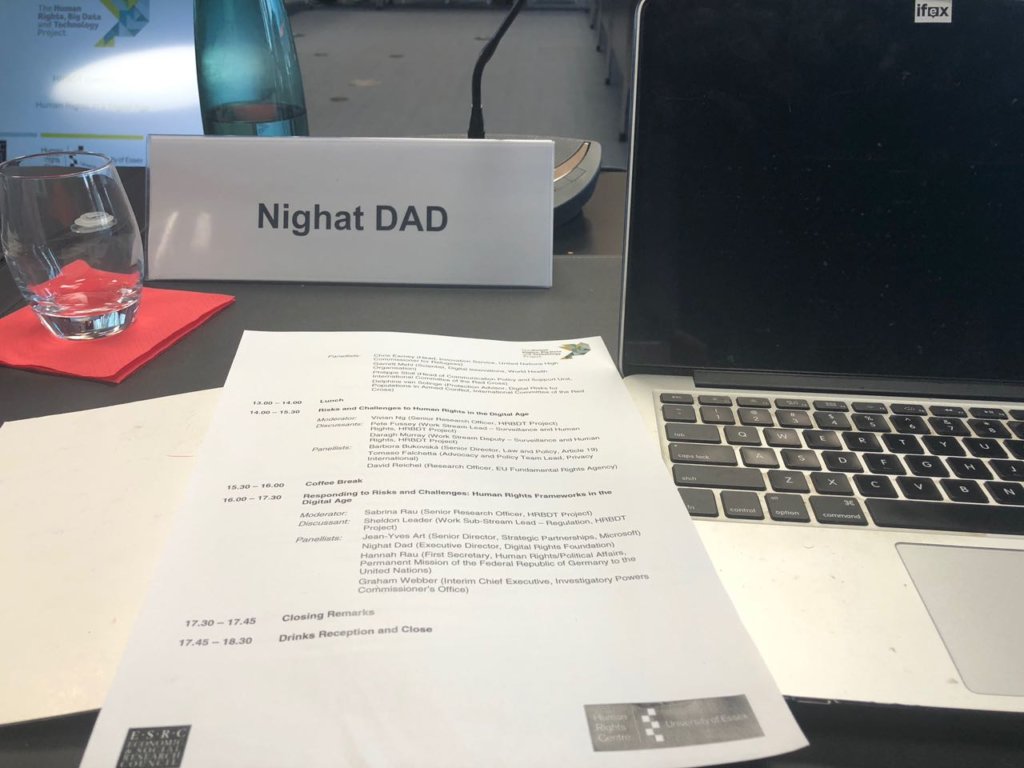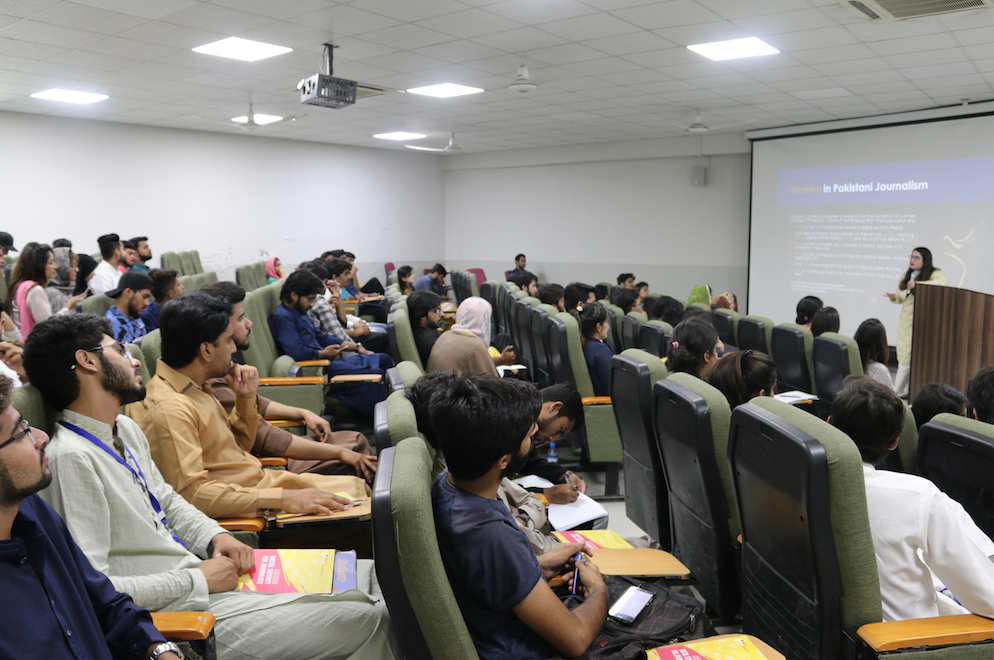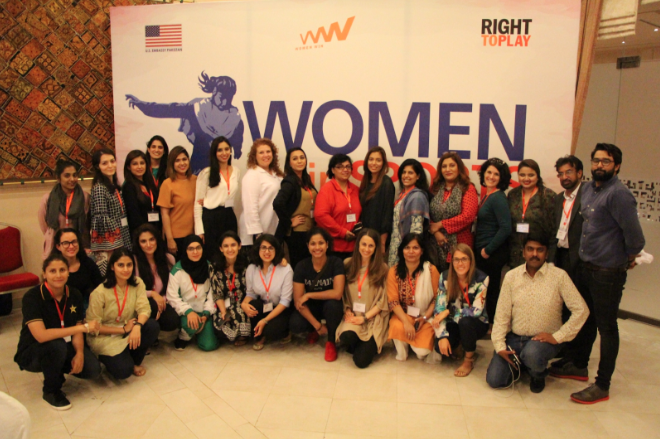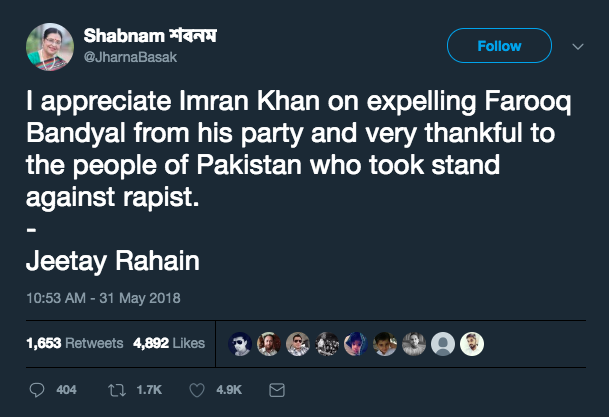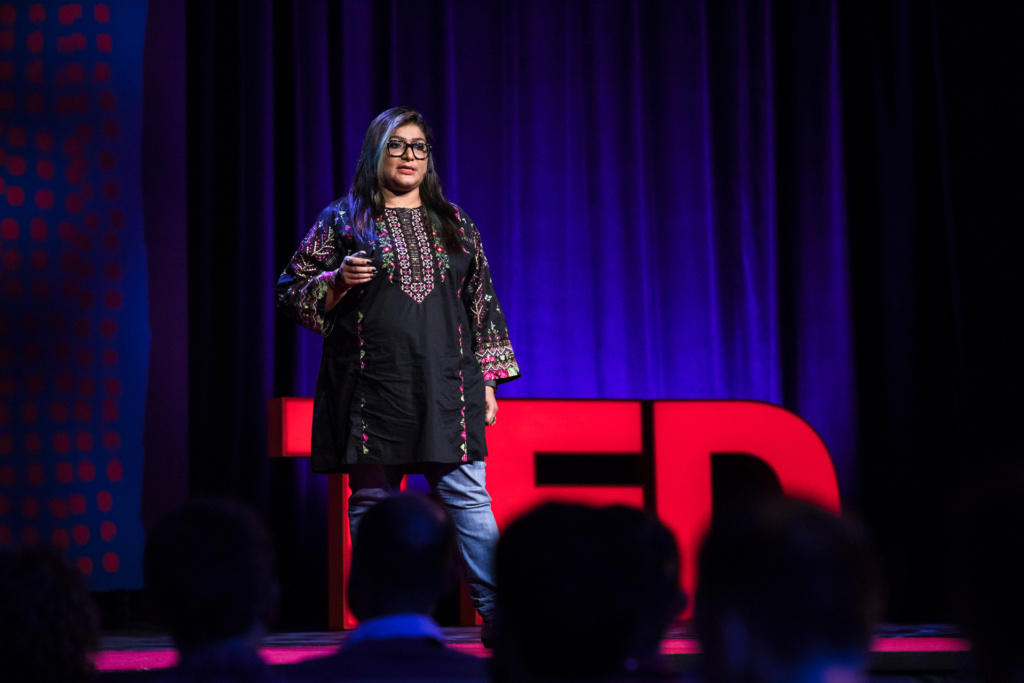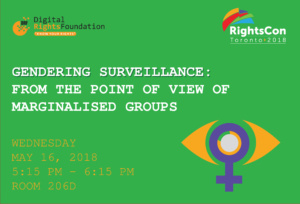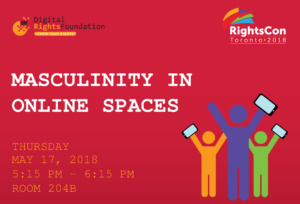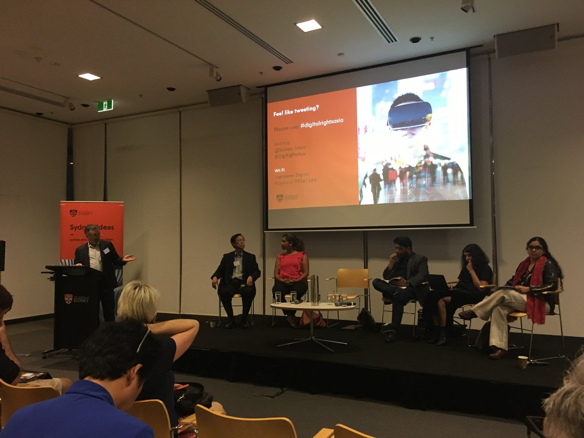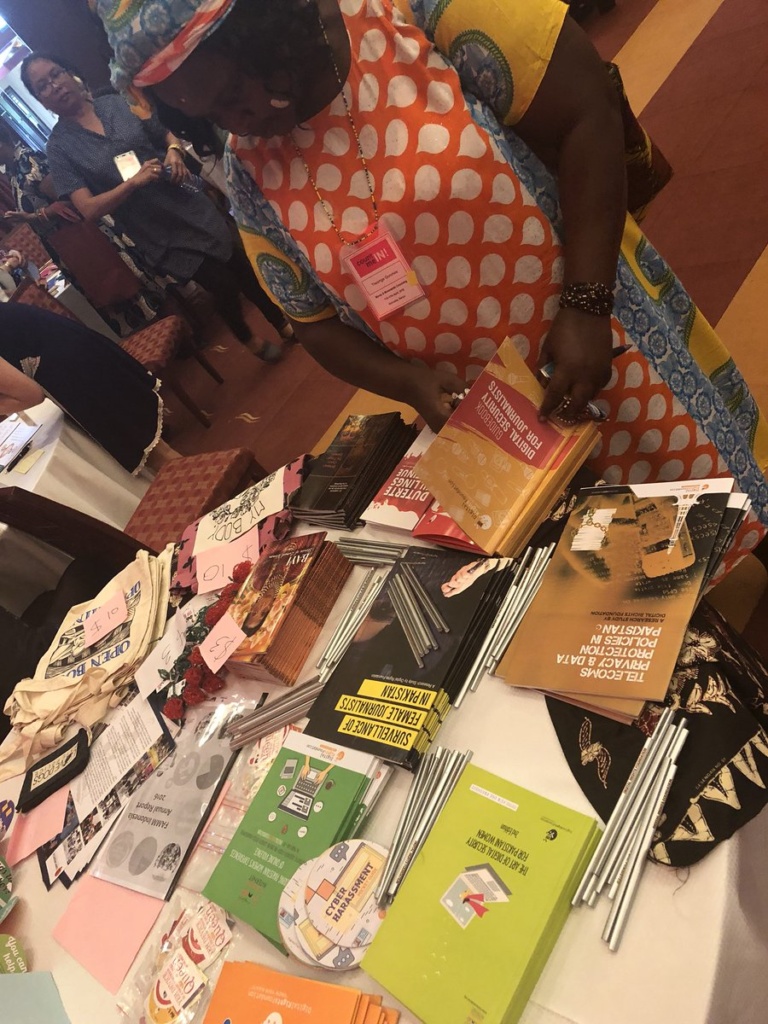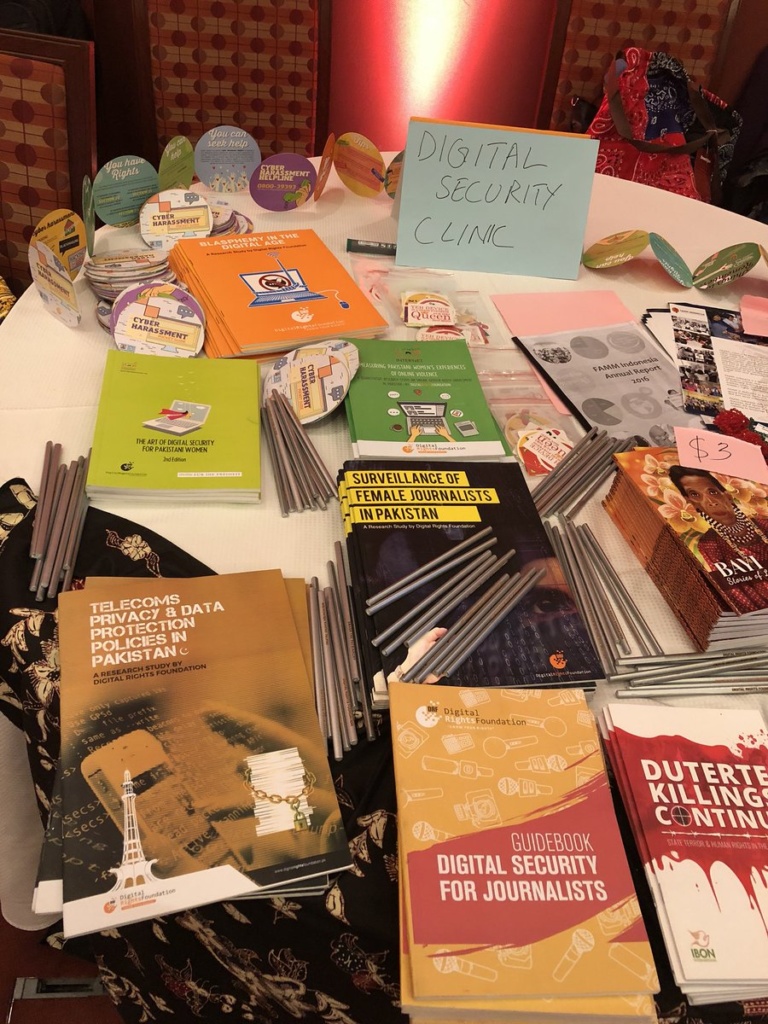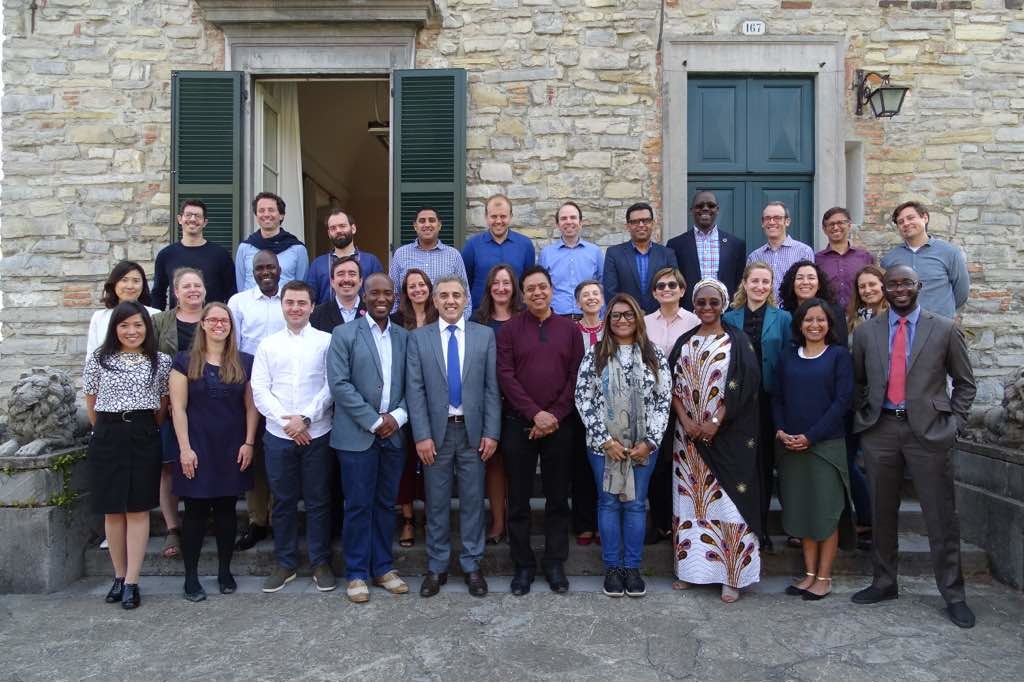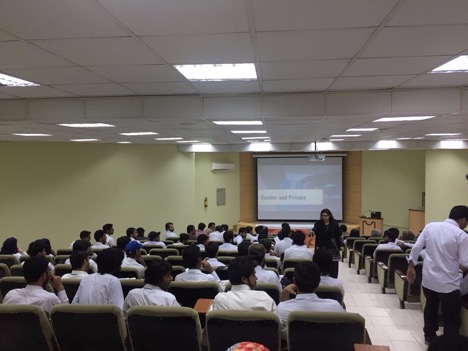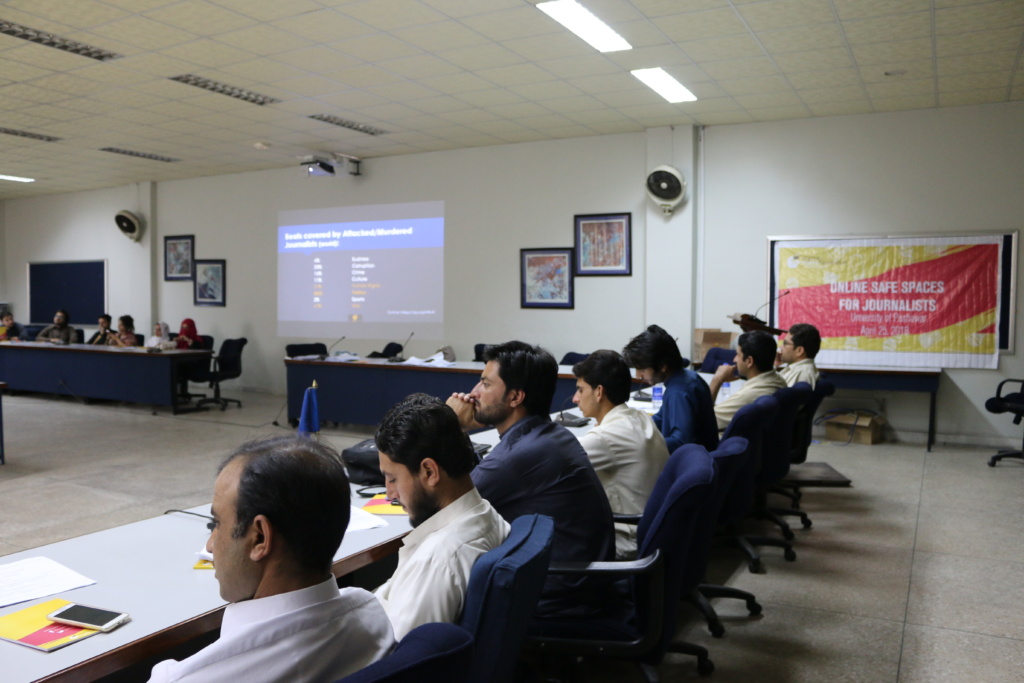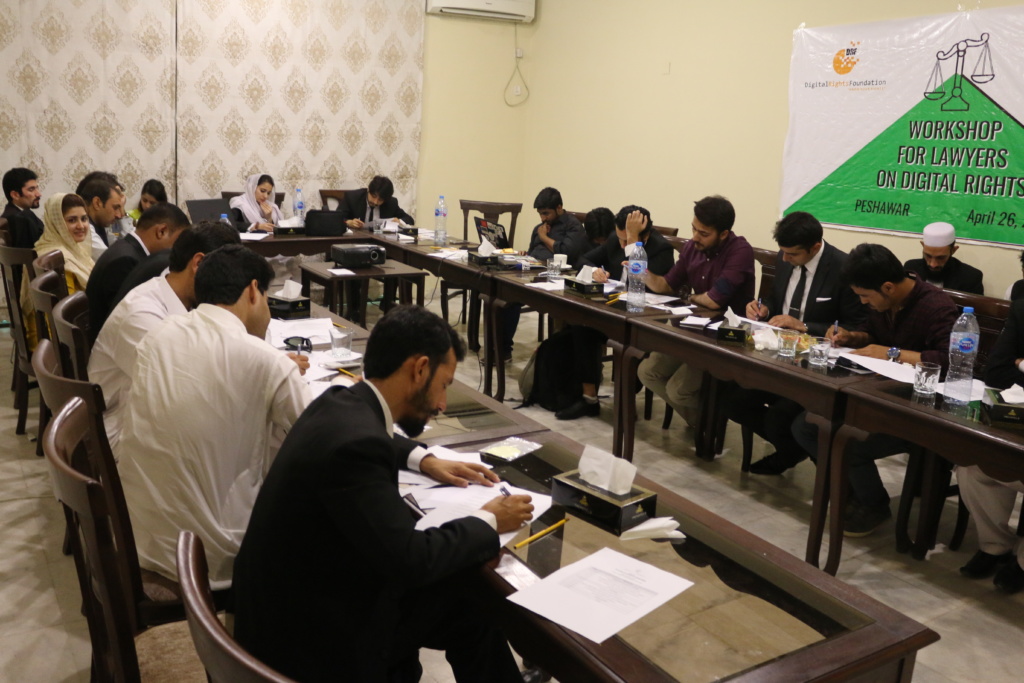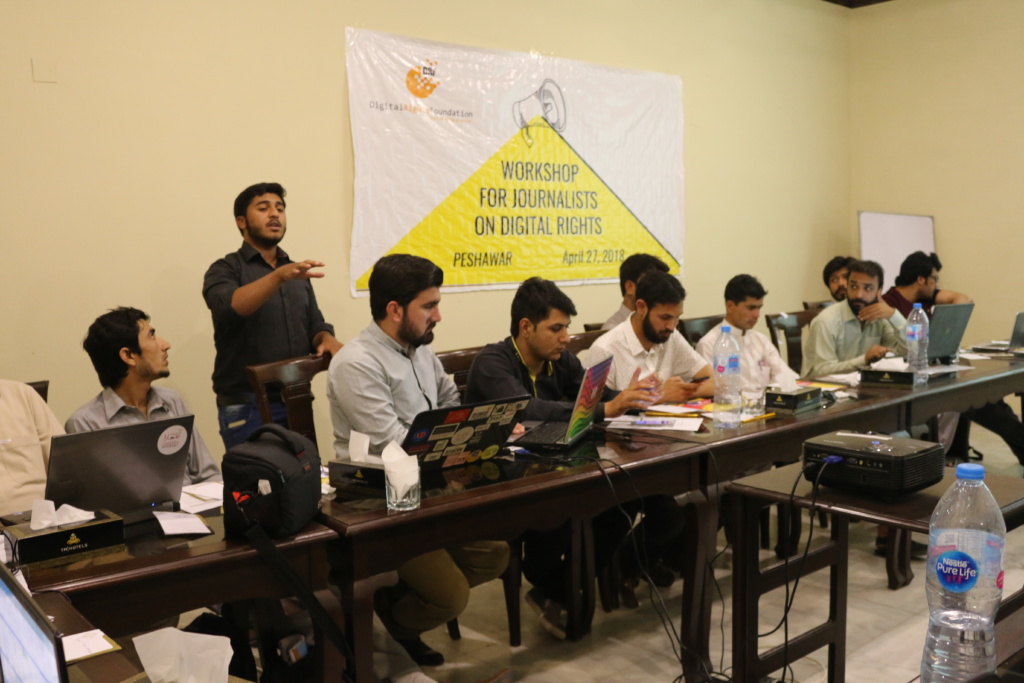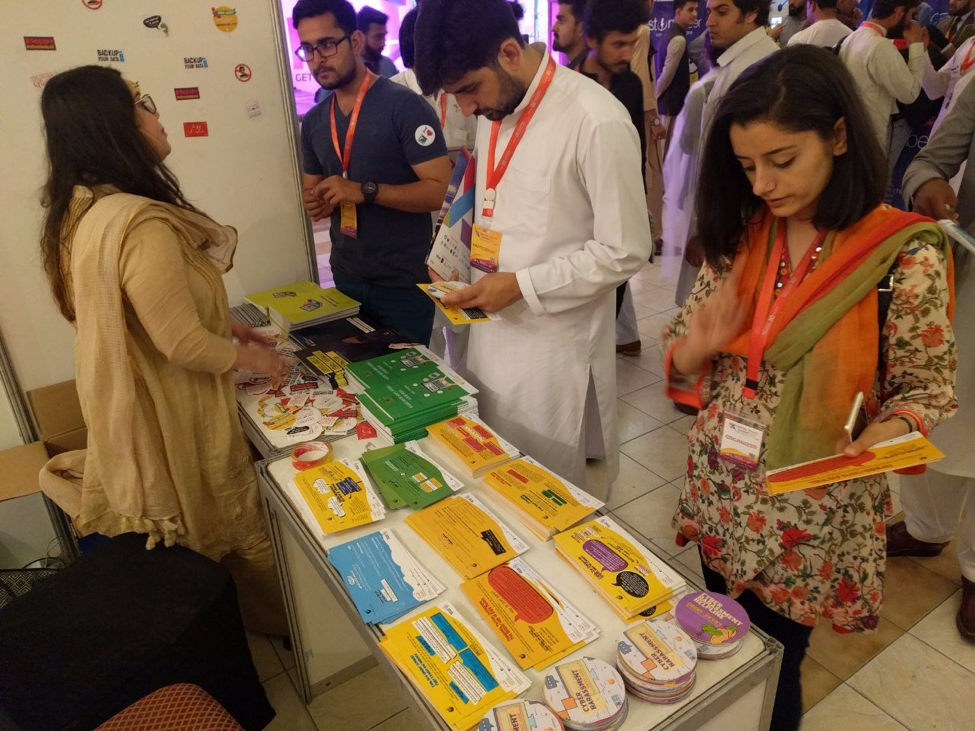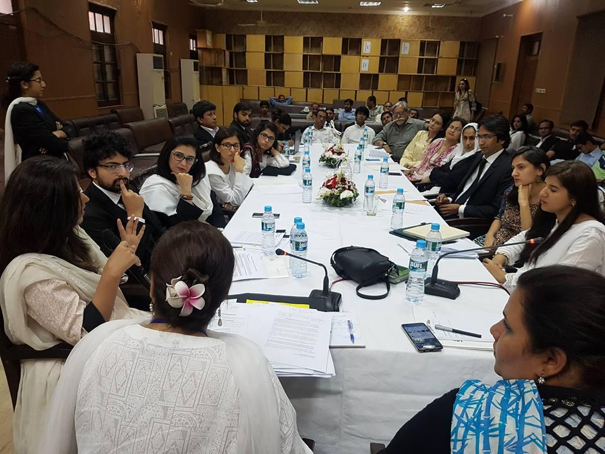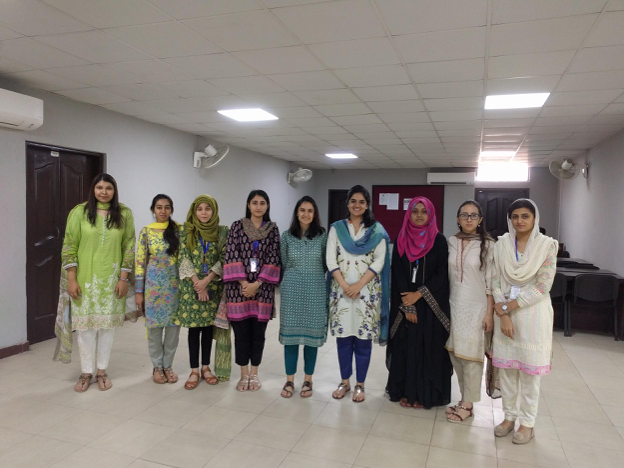June 14, 2018 - Comments Off on May 2018: Online safety of journalists and press freedom are imperative for countries to thrive
May 2018: Online safety of journalists and press freedom are imperative for countries to thrive
World Press Freedom Day 2018
Digital Rights Foundation celebrated World Press Freedom Day on May 3, 2018 alongside journalists and media, and discussed the important issues pertaining to press freedom - both locally and internationally. The conversations revolved around the safety of journalists in the digital world and their right to free speech without being subjected to violence that force them to self-censor, or censorship enforced by internal and external actors. Here are the activities the team of DRF was involved in for #WPFD2018:
- UNESCO World Press Freedom Day Celebrations in Accra, Ghana
Hija Kamran represented the Digital Rights Foundation at the World Press Freedom Day celebration organised by UNESCO in Accra, Ghana. She was part of some important conversations that discussed journalists’ right to online safety, and their right to freedom to expression.
-
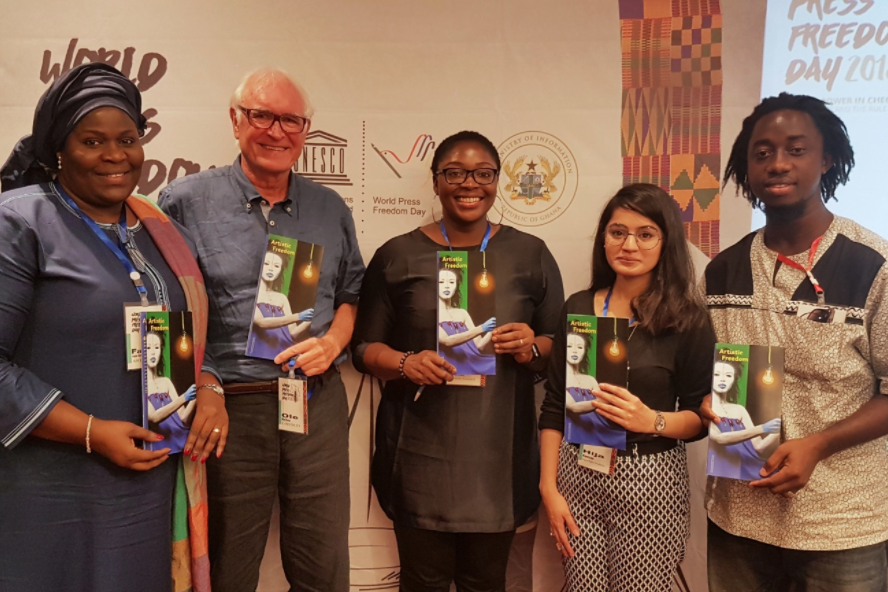
- (L-R) Fatou Jagne, Ole Reitov, Ojoma Ochai, Hija Kamran, Bright Ackwerh – Panelists for Artistic Freedom in the Digital Age
-
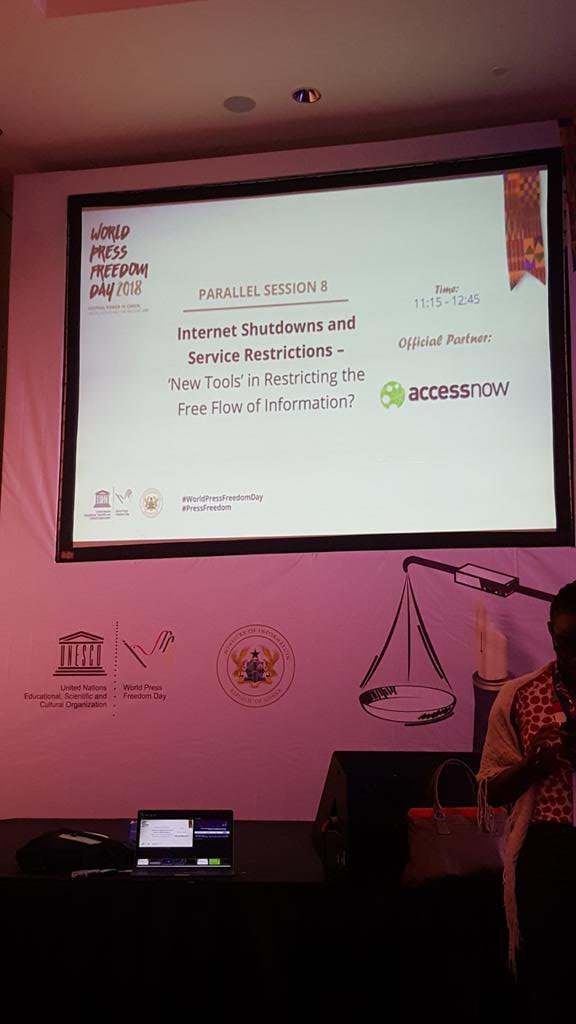
- Access Now: Internet shutdowns and service restrictions – ‘New tools’ in restricting the free flow of information?
The panel discussions that Hija was part of included a high level panel hosted by UNESCO titled “Artistic Freedom in the Digital Age” (details on the discussion here) where her intervention addressed how women artists experience online spaces differently than men. Sharing some case studies from Pakistan, she shared that the abuse is mostly directed on a personal level for women, while men experience criticism on their work.
Another session that Hija spoke on was hosted by Access Now and was titled “Internet shutdowns and service restrictions - 'New tools' in restricting the free flow of information?” hosted by Access Now. This session addressed that internet shutdowns, in addition to being the violation of people’s right to freedom of expression, obstruct journalists’ work a great deal. Hija shared the findings of the interviews she conducted with journalists in the light of now two-year long internet shutdown in Federally Administered Tribal Area (FATA), Pakistan where journalists have to travel 20 km to deliver news to their media houses.
- "Advocacy for Digital Rights" - Training session in Accra, Ghana
-
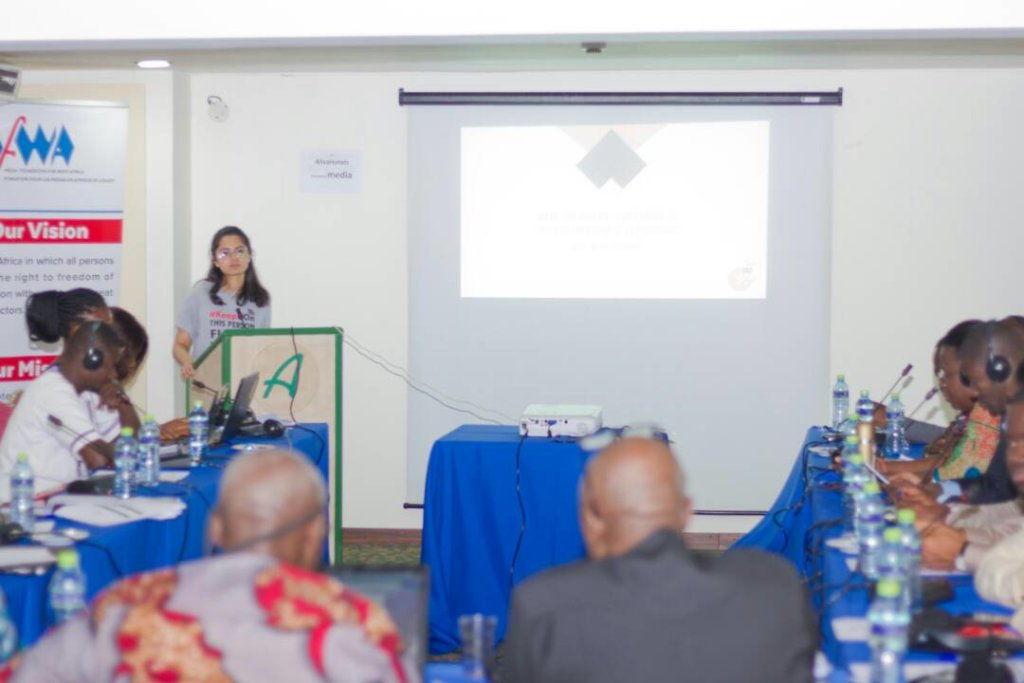
- Hija Kamran delivers a training “Advocacy for Digital Rights” with experts of free expression from West Africa
-
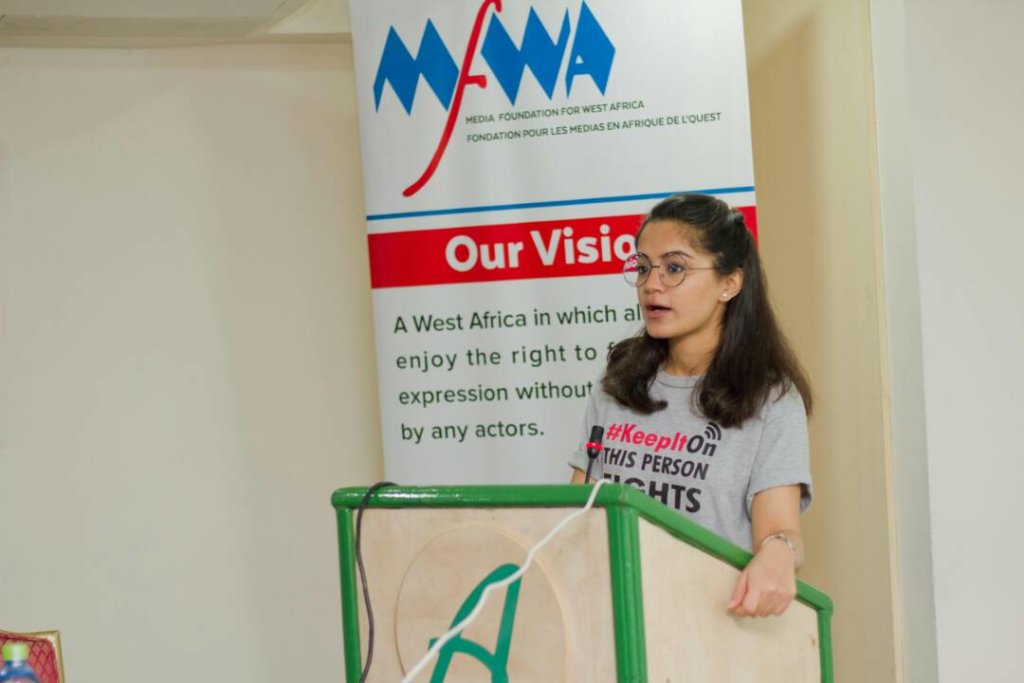
- Hija Kamran delivers a training “Advocacy for Digital Rights” with experts of free expression from West Africa
Hija Kamran conducted a training session hosted by Media Foundation for West Africa with the partner organisations from around West Africa, in Accra, Ghana. The training titled "Advocacy for Digital Rights" aimed to equip advocates of free expression for journalists in the region to raise issues of digital rights in a manner that is inclusive and effective. By using examples and case studies from South Asia, Hija directed the conversation on rights of the people in digital spaces focusing on building counter narrative especially around internet shutdowns - a frequent problem true to almost all of the world.
- DRF Campaign on World Press Freedom Day 2018
According to a survey conducted by DRF, nearly 72% of female journalists in Pakistan and 61% of male journalists experience digital insecurity. Through our Network for Journalists for Digital Rights, we ensure empowerment with digital tools and security protocols in order to work more securely and efficiently.
Here’s what our network members shared on World Press Freedom Day:
Anushe Noor: “Being in the media is not considered very feminine - so when a woman decides to take up journalism as a career, she's faced with criticism”.
Umaima Ahmed: "The challenges faced by women in media include discrimination in position, pay and the beats assigned to them as well as emotional and sexual harassment. Today, I press for women’s freedom in media so that they can place an active role in making this world a better place".
Zeenat Shehzadi: "Our culture is restrictive of women entering the media, which leads to a lack of reporting on women-centric issues. We must be provided with safe and secure environment to be able to shed light on the issues that people face".
Sabin Agha: "Women journalists face an added threat and that is character assassination. It is very easy to assassin the character of a woman journalist as we live in a conservative society and they are considered easy target for intimidation".
Afia Salam: "The journalist community in Pakistan needs to take a stand against those who are suppressing their voices because without it people in this society won't be able to seek justice."
Freedom of Expression, Privacy and Rights of the Marginalised: DRF discusses at RightsCon 2018
Digital Rights Foundation headed to Toronto this May to attend RightsCon 2018. At the leading conference on human rights in the digital age, DRF's intensive participation was focused on Freedom of Expression, Data Protection, and Gender. All of these areas are related to human and digital rights, they are all causes that DRF has been working hard for whether through research, on-the-ground assistance, or advocacy. Read more...
Digital rights defenders under threat: Strategies to resist fear, surveillance and (self-) censorship: re:publica 18
Nighat Dad spoke at the panel titled "Digital rights defenders under threat: Strategies to resist fear, surveillance and (self-) censorship" at re:publica18 in Berlin, Germany. The discussion focused on digital attacks against human rights defenders that have expanded dramatically. Vaguely defined anti-terrorism legislation and spyware allow for targeted surveillance; trolls manipulate online content and conduct intimidating smear-campaigns. Against this backdrop of shrinking space and global backlash, holistic strategies for digital rights defenders are crucial. The session presented experiences from human rights activists in the Global South and discussed success stories and lessons learned from digital security and privacy initiatives. Watch the discussion here and details on the panel here.
Responding to Risks and Challenges: Human Rights Frameworks in the Digital Age - HRBDT
Nighat Dad attended the HRBDT Conference - Human Rights in the Digital Age to be part of the panel titled "Responding to Risks and Challenges: Human Rights Frameworks in the Digital Age" happened in Geneva. Nighat highlighted the issues that human rights defenders and advocates for social change face in the global south, and emphasised particularly on issues in the context of Pakistan. She said, "In the absence of strong data protection legislation, human rights defenders are particularly at risk based on their digital footprint, the threat which very quickly transfers into offline consequences. Hence, it's imperative that countries like Pakistan move towards drafting a legislation that grants relief and protection to people and their digital data."
DRF condemns yet another breach of NADRA database and demands strong data protection legislation
There have been a staggering number of instances of mismanagement of personal data that can be traced back to NADRA, the most recent of which is a reported breach into Punjab Information Technology Board (PITB) that has resulted in the loss of a critical amount of confidential data, access to which was granted by NADRA and which is being sold over the internet for as low as Rs.100 (equivalent to almost $1). This hit, which is as recent as May 2018 is yet another forced intrusion into our private lives at the hands of hackers, however the reason our personal data has been so easily plucked is the abysmal state of affairs is our data protection policies, or lack thereof. Full statement here.
Open Letter to Twitter: Please Do Better about Misinformation during General Elections 2018
Dear Twitter,
We heard that you want to do better in making Twitter an inclusive platform. We heard that you have updated your strategy to fight trolls to make it a safe space for everyone. And we also heard that you are committed to fight fake news, especially after what Facebook has gone through in the past couple of months. We, for one, were glad that you are at least trying. But are you?
Digital Rights Foundation writes an open letter to Twitter to address the spread of misinformation on its platform during the General Elections of 2018 in Pakistan. Read the letter here.
Statement: DRF expresses concerns over the ban on the messaging app Telegram in Pakistan
We at the Digital Rights Foundation (DRF) are extremely concerned regarding the ban on the social media messaging application, Telegram, by the Pakistan Telecommunication Authority (PTA). We issued a statement to express our concerns about this ban which curtails the right to communicate in a secure and safe manner. Read the statement here.
TED Global publishes Nighat Dad's talk
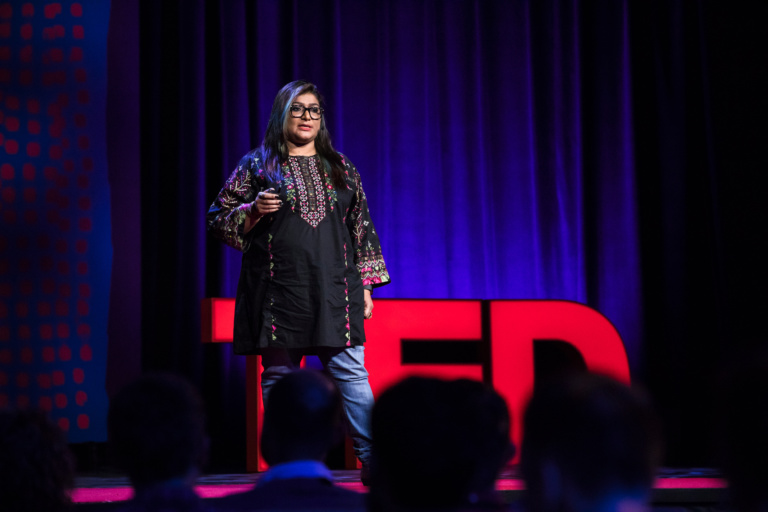
Nighat Dad speaks at TEDGlobal 2017 - Builders, Truth Tellers, Catalysts - August 27-30, 2017, Arusha, Tanzania. Photo: Bret Hartman / TED
Nighat is one of the remarkable Pakistanis who, along with her team of phenomenal people, is making Pakistan proud across the world. Nighat’s story is not one of its kind, in fact, it’s a story of every woman - young and old - who was brave enough to mark her existence in the online world; a world that is known to be cruel and yet is believed to be harmless for its virtual nature. Details and video here.
“Online Safe Spaces for Journalists” at University of Management and Technology, May 4th, 2018
DRF held a session at University of Management and Technology with students of Media and Communication. Around 65 students attended the awareness raising session where they were encouraged to keep themselves secure online. In the second half of the session they were given digital security training and were also provided with CDs which included security toolkits and a guidebook on digital security.
Workshop: Right to Play
DRF attended and participated in a day long workshop around women’s participation sports and journalism around sports. Social media was marked as a game-changer for coverage as women sports as great strides have been made without the strictures of traditional media. However female sports journalists talked extensively about online harassment and the toll it can take on their work. The workshop was attended by the top female journalists in Pakistan and some prominent sports personalities.

